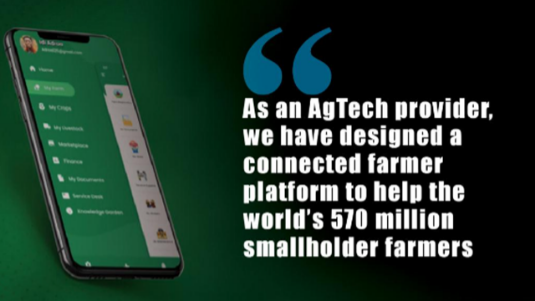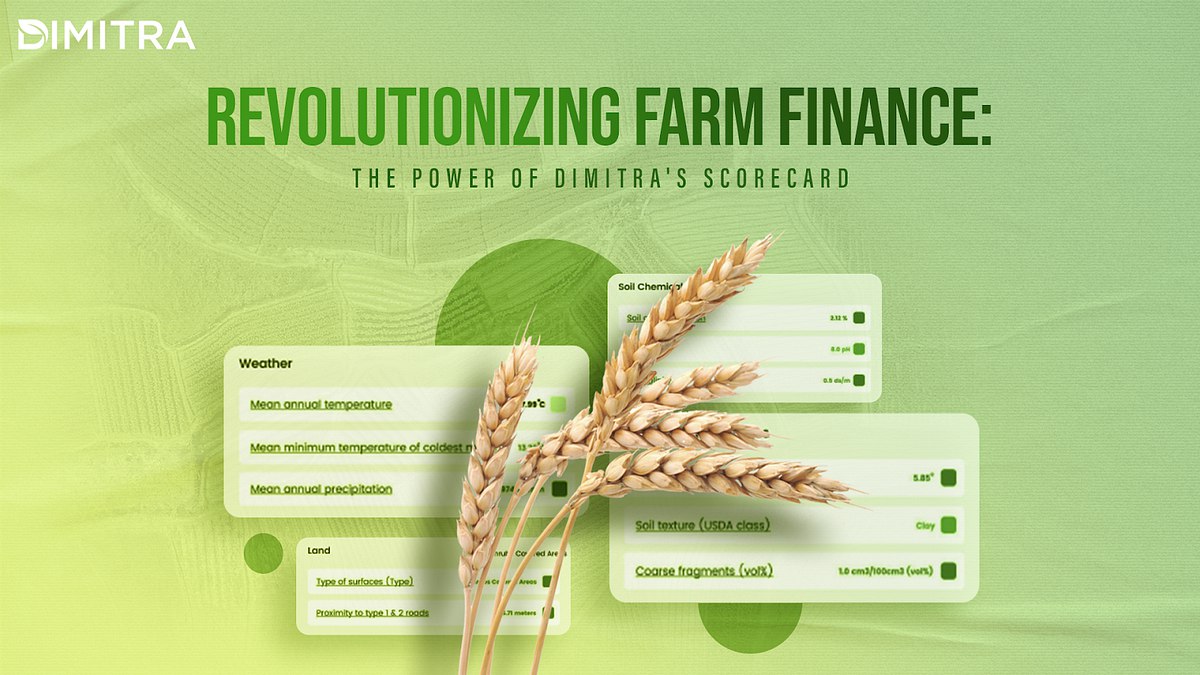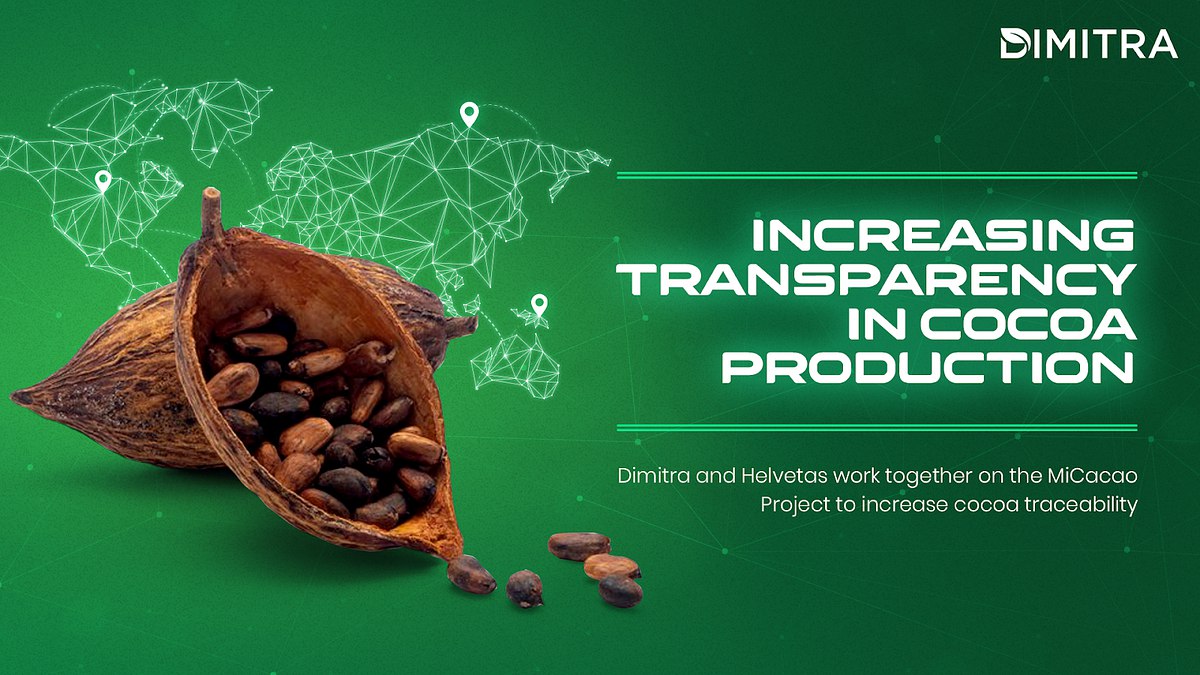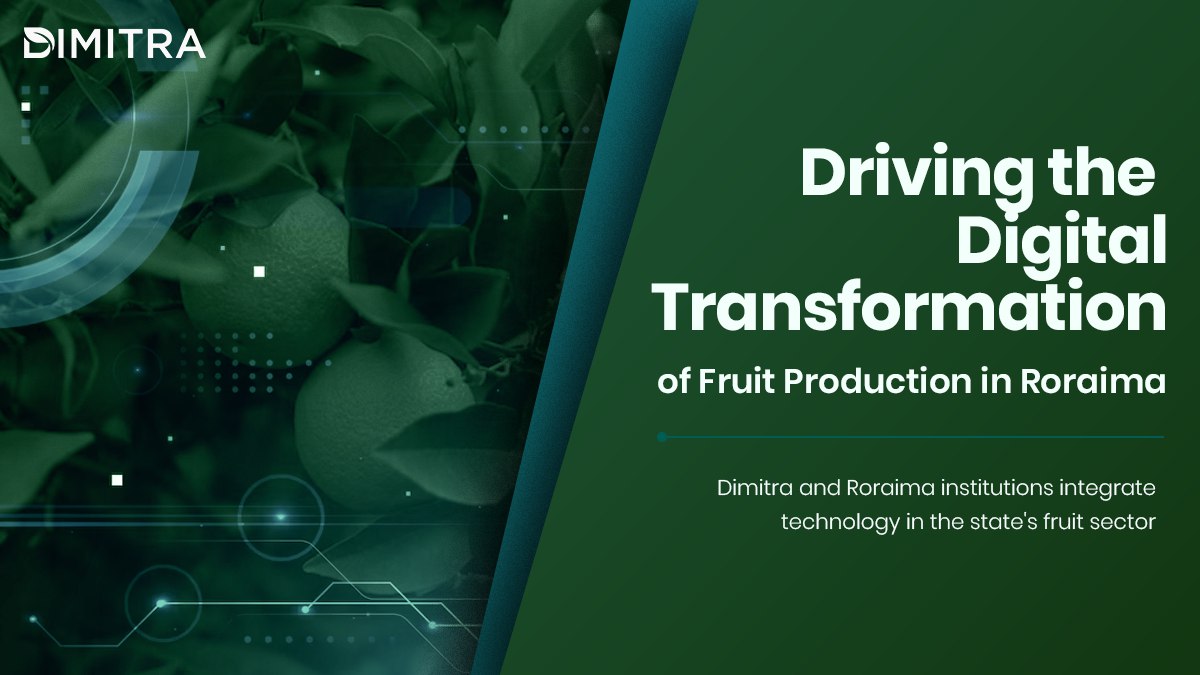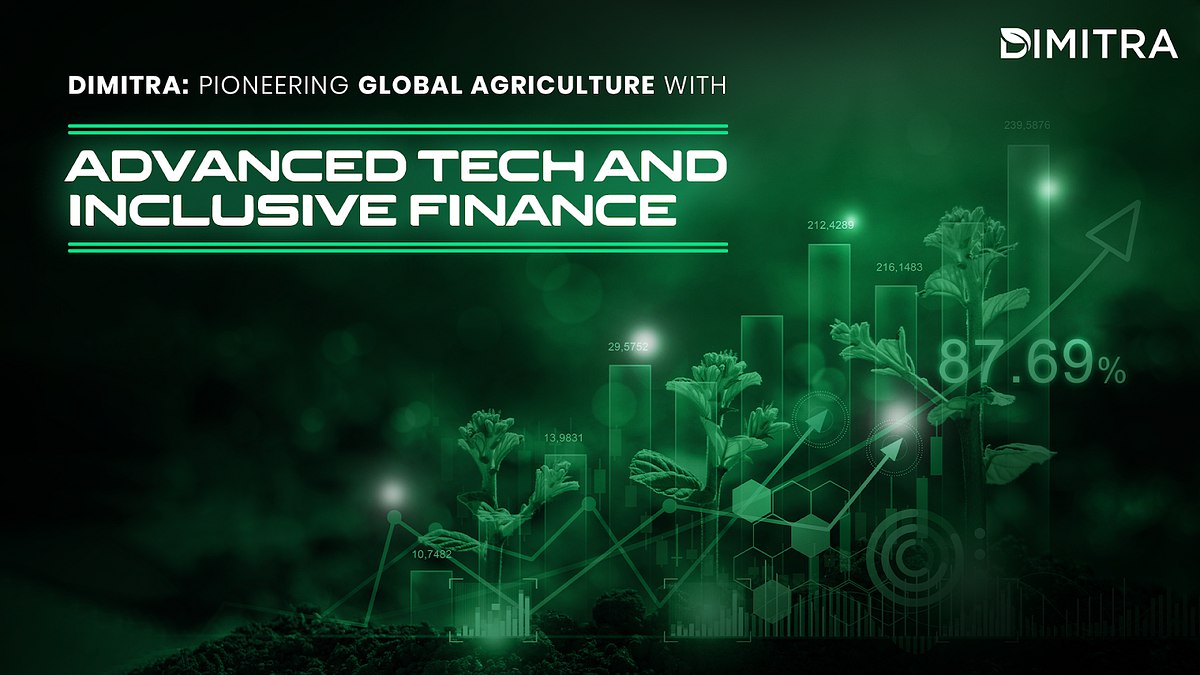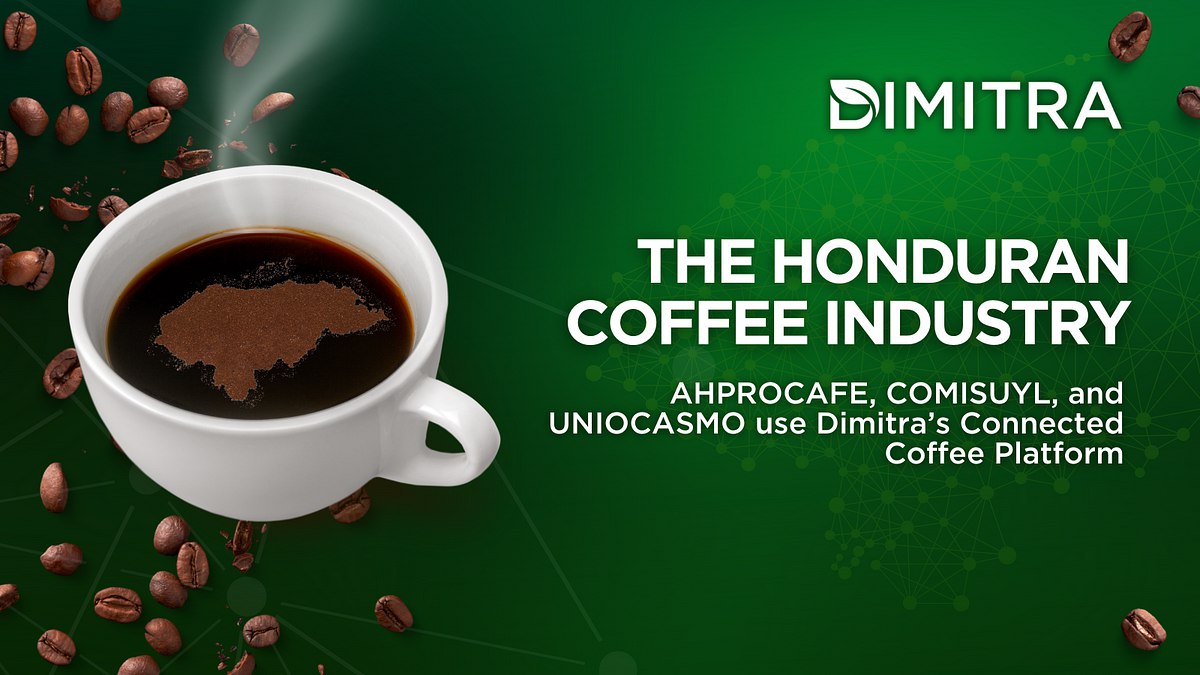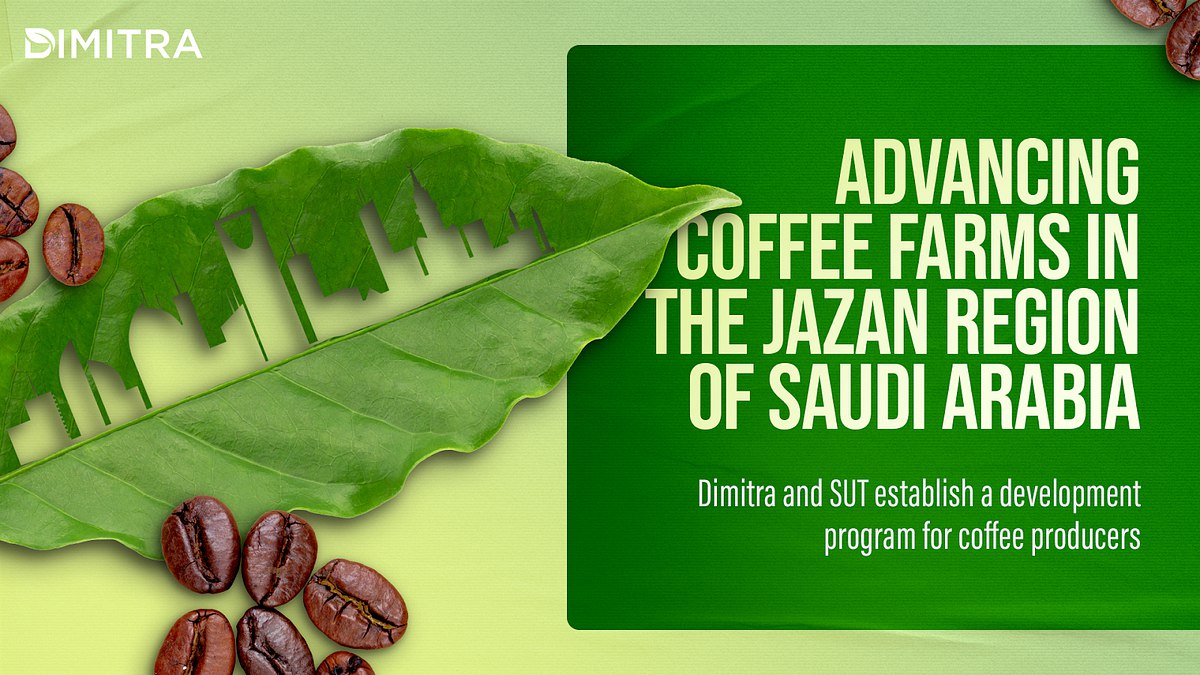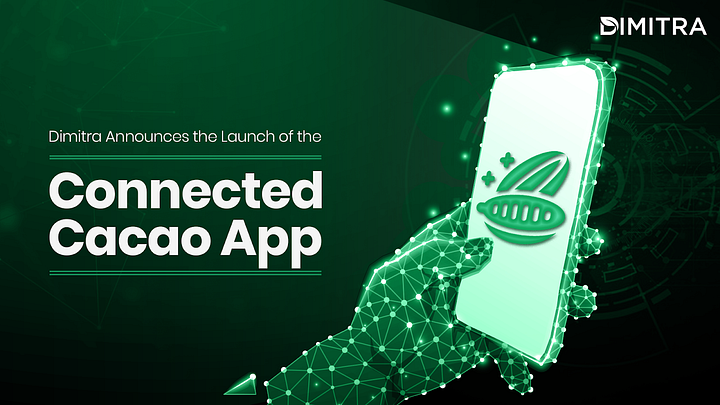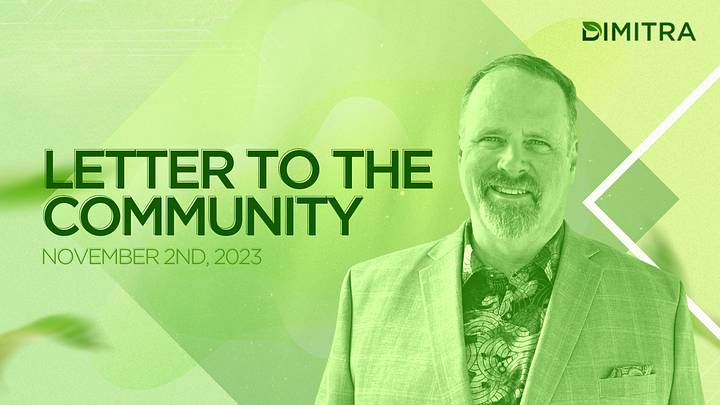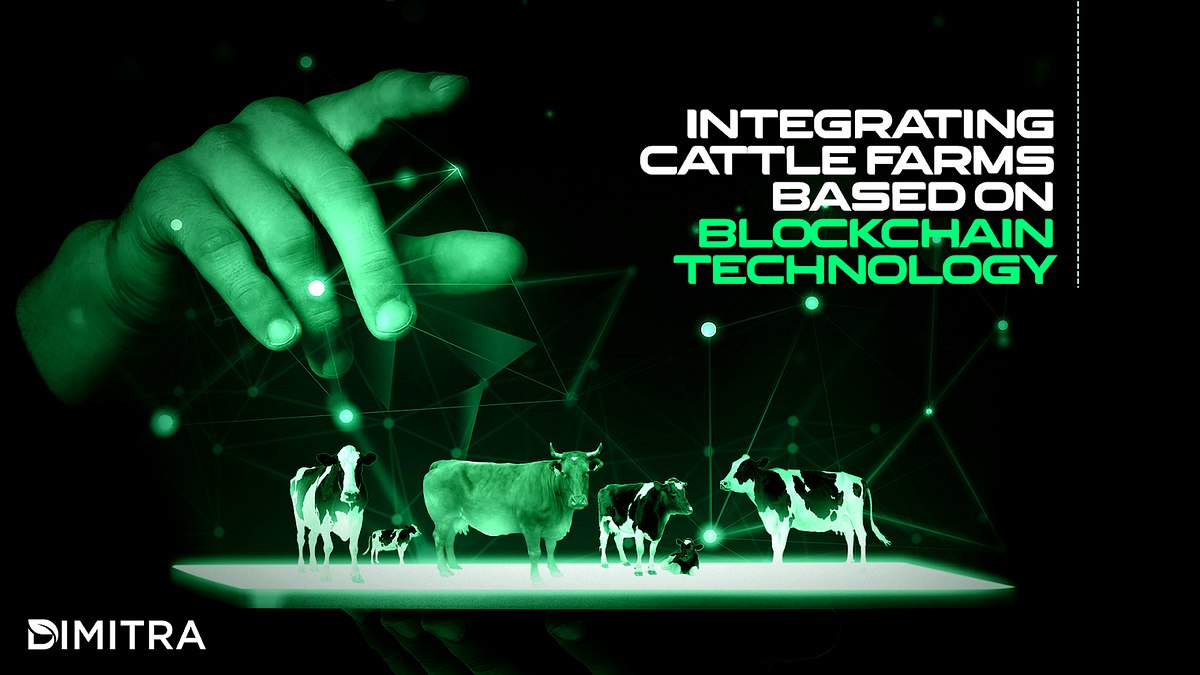How Does AI Blend into Dimitra’s Technology?
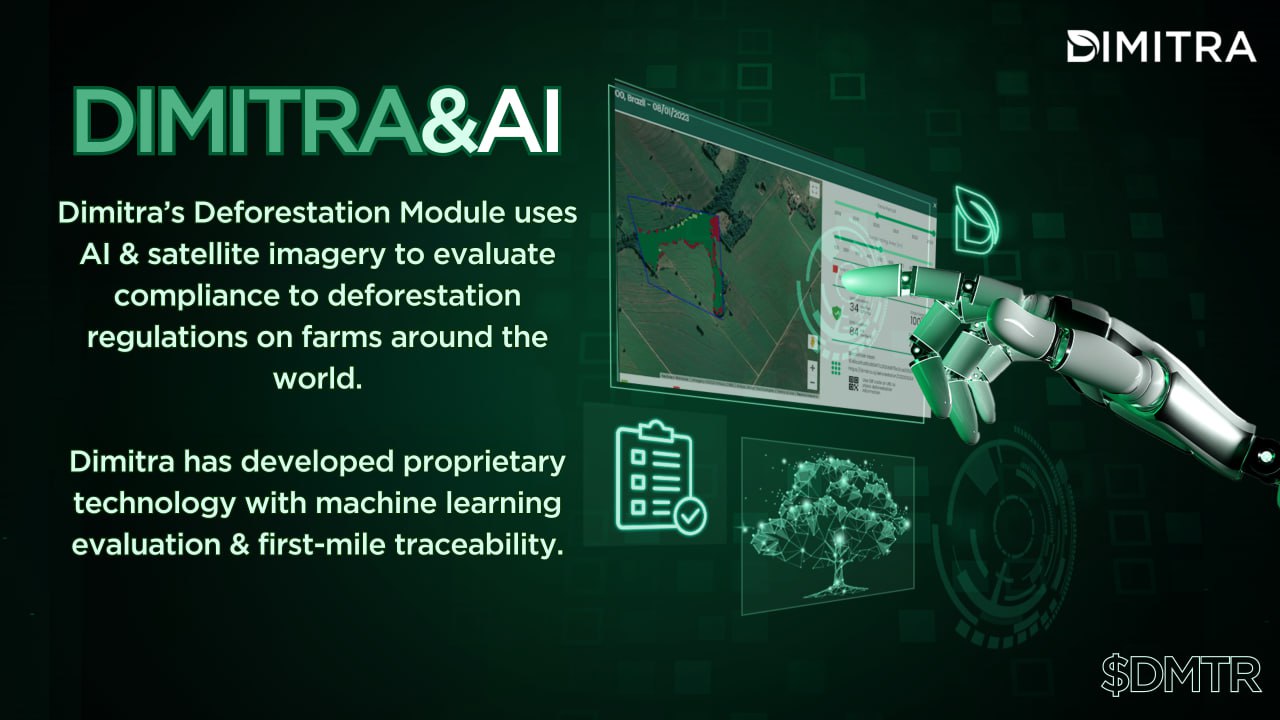
Dimitra AI – Artificial Intelligence (AI) in the agriculture market is projected to grow from $1.7 billion in 2023 to $4.7 billion by 2028.
Unfortunately, smallholder farmers, who produce nearly one-third of the world’s food, rarely benefit from these growing markets. Moreover, they are often the last to see progress coming from advanced technology like AI.
Working on the cutting edge of technological advancements, Dimitra’s agricultural application stack interweaves elements of AI and Machine Learning (ML) to support farmers across the globe and put next-generation tools into their hands.
While these applications meet varying and diverse needs with many different technologies, a critical component of this new green revolution is AI.
But how does it all work?
What does the experience look like for a farmer utilizing Dimitra applications to improve crop yields, manage livestock or battle the pox of global deforestation?
Let’s explore three key examples.
Crop Performance – Dimitra AI
On-the-ground data is essential to making real improvements in crop performance.
Satellite-based spectral and radar imagery analysis pairs with soil, weather, planting, and other agricultural data to deliver farmers AI-based recommendations that can have a significant impact on crop yields and overall productivity.
So, what does all this look like in a real-life use case? Let’s take a trip to South America.
In Bolivia, quinoa is a high-value crop. In 2021 alone, the U.S. spent nearly $25 million on the Bolivian superfood.
Even with all this capital flowing in, smallholder farmers responsible for quinoa production face challenges from low-tech processes, soil degradation, and pest issues. AI and ML models built for these Bolivian farmers utilize advanced weather monitoring alongside satellite imagery. This is to help mitigate crop failure and better predict future performance.
AI also helps battle the scourge of productivity in the area — pests.
Sensors and AI tools help farmers monitor pest threshold levels to enable them to quickly enact countermeasures and keep fields safe.
Through the Connected Farmer Platform, farmers like those in Bolivia can use AI tech to analyze data from all kinds of sources efficiently:
- Inputs
- Satellite imagery
- Value chain partners
- Internet of things (IoT) devices
The platform provides insights and recommendations to farmers that result in improved crop yields and, in turn, overall profits. Moreover, it connects national agricultural data to help governments generate reports and organize local agricultural value chains.
In fact, this results in improved traceability and useful data sets that help develop better public policies that increase GDP.
Animal Productivity
Family farmers rearing and caring for livestock across the world are facing competitive markets, inefficient herd management systems, and breeding practices that lag well behind modern standards.
When we talk about leveraging AI and ML to improve livestock performance, it directly translates to giving these farmers a data-driven advantage in their everyday decision-making.
Dimitra’s Livestock Guru puts those practical AI-based tools right into their hands.
Many environmental, management, and hereditary factors affect the performance of cattle. Moreover, having a comprehensive vantage point based on ML and statistical analysis results in better predictions, performance, and productivity across many different areas:
- Cost optimization
- Pasture management
- Genetic selection
- Farm performance
Nutrition, weather, water, disease, temperature, etc., all affect the lifecycle of the animals.
By categorizing livestock into groups using these conditions, Livestock Guru helps farmers make better-informed decisions based on data-driven predictions. This influences areas like farm management, animal management, and breeding.
The result? More efficient livestock practices for those who need them most and higher quality products.
Deforestation – Dimitra AI
Between 2015 and 2020, the rate of global deforestation fell from 16 million hectares per year to 10 million.
Thanks in part to changing perceptions toward global conservation and drives to enact regulation, we’re now in the third decade of deforestation decline. Far from over, though, the problem we face now is getting a clear picture of deforestation issues and effective methods to enforce regulations.
Dimitra’s Deforestation Compliance Module uses satellite imagery to differentiate between trees, crops, forested areas, and clear-cut sections to do precisely that.
ML models leverage this data to understand what’s happening on the ground without ever touching the soil. To intelligently identify the deforested areas in a sea of green, the module uses AI to determine texture, color, reflectivity, and much more.
This allows both farmers and traders to offer full transparency in their supply chain. Additionally, it allows them to prove with data-backed insights their compliance with deforestation regulations.
GPS track and trace is required to prove compliance in some global markets, like the European Union.
Connecting Everything to DMTR
While powerful AI technology delivers insights to farmers, it’s only a glimpse into the full Dimitra agricultural tech stack.
Underneath it all is an optimized blockchain architecture that powers a global marketplace, financial services, and distributed analytics. So how do these practical AI-powered platforms connect to the Dimitra Token (DMTR)?
Here are three examples:
- Crop performance — this feature of the Connected Farmer Platform is available to license with payments in DMTR. The platform locks farmer rewards from licensing and use for a fixed period of time prior to releasing back to the cooperative.
- Animal productivity — paying licensing fees in DMTR is the only way this module interacts with the token.
- Deforestation — every deforestation certification generates revenue. The platform then uses the balance to pay filing fees, buyback tokens, or burn tokens.
AI Technology Powers the Future of Agriculture
Whether it’s tracking drone data or soil sensor activity, AI is a critical component of the next generation of agricultural products. Dimitra is taking those tools, combining them with other advanced technologies, and providing them to those who need them most.
As the world evolves, Dimitra is committed to developing an all-in-one agricultural platform that caters to farmers across the globe.
This platform utilizes AI and ML tech across the stack to deliver insights that offer real-world results. That means better crop productivity, better livestock management, and a clearer picture of global deforestation.
Dimitra Incorporated
New Horizon Building, 3-1/2 Miles Philip S.W. Goldson Highway, Belize City
info@dimitra.io